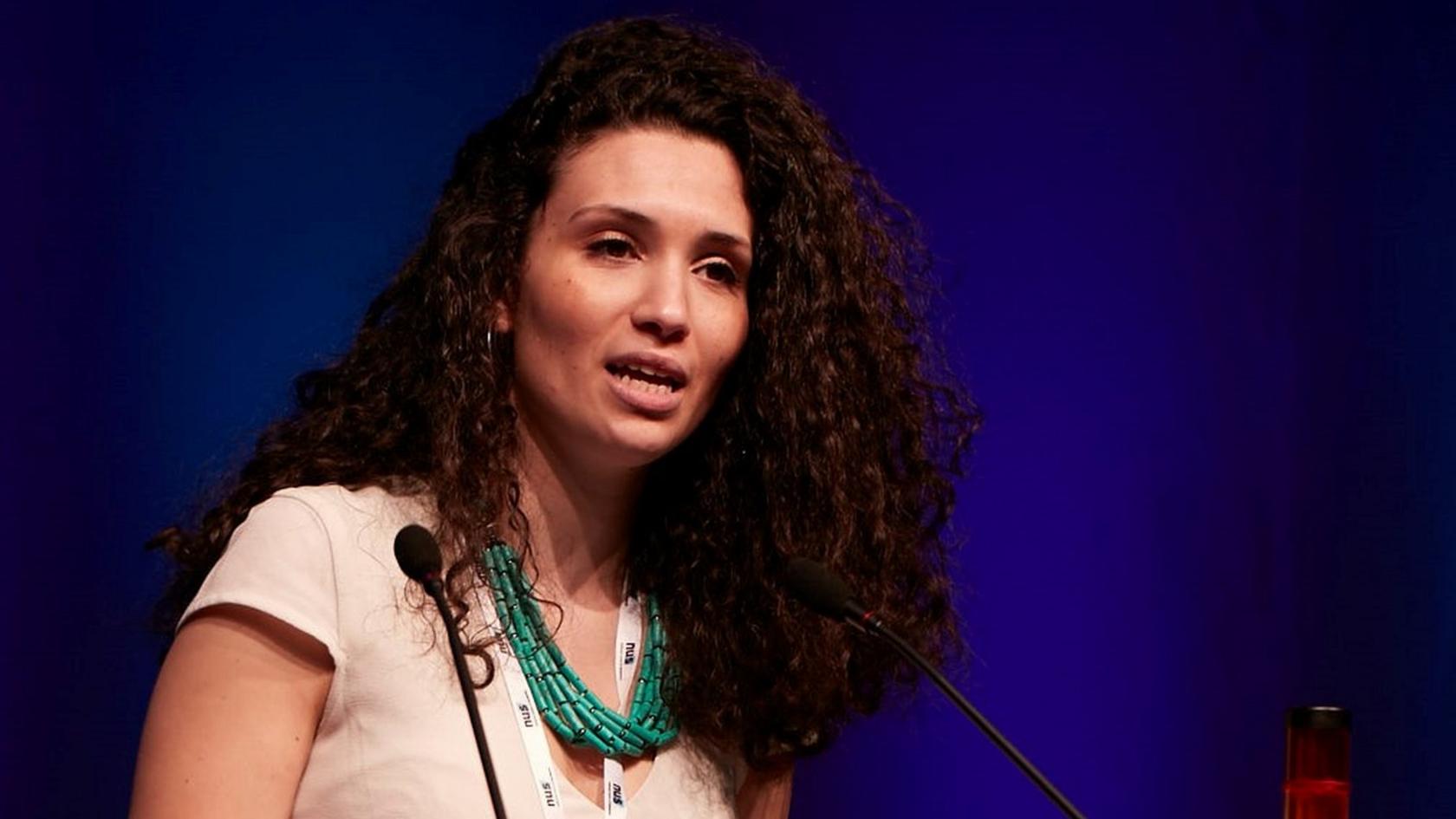Students threaten to split from NUS over new president
- Published
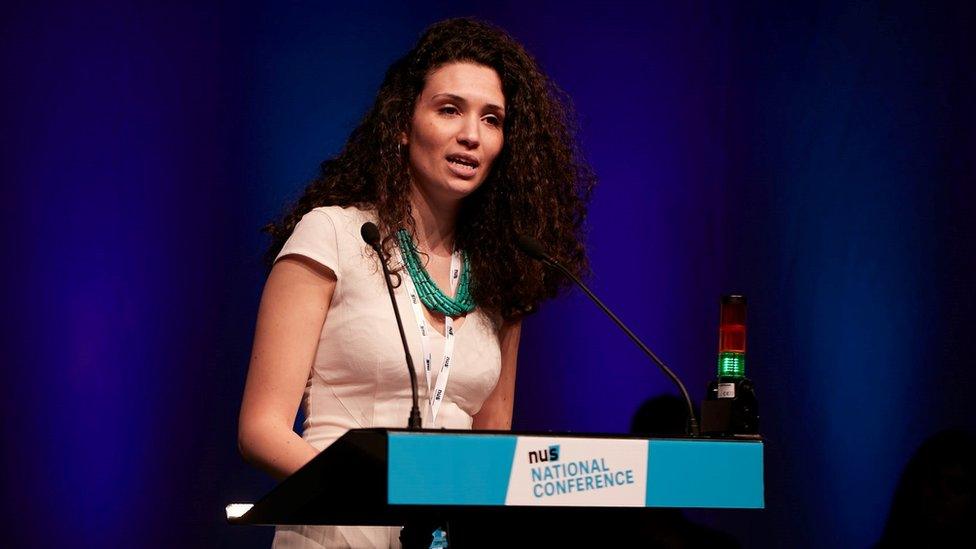
Malia Bouattia's previous comments have caused some controversy and led to claims of anti-Semitism in student politics
Students from several universities, including Oxford and Cambridge, are threatening to vote to break away from the National Union of Students.
It follows the controversial election of new president, Malia Bouattia, the NUS's first black female Muslim leader.
Ms Bouattia has been accused of making anti-Semitic remarks - including calling the University of Birmingham "something of a Zionist outpost".
She has insisted her argument was political rather than one of religion.
Harry Samuels, an NUS delegate from the University of Oxford, told BBC Newsnight the appointment of Ms Bouattia was undemocratic, as she was not elected under a system of "one member, one vote".
"It's not just about Malia in particular," he said.
"Obviously her election enshrines the fact that NUS no longer represents all students, but there are other grievances we have with the rest of the organisation, there are other reasons we think that the organisation is no longer reformable.
"It's the mixture of those reasons why we're campaigning to leave."

How the NUS votes
The National Union of Students is a "confederacy" of student unions from every affiliated further and higher education institution in the UK.
Individual students do not pay a membership fee but are automatically members of their student union.
They are asked to elect officers and conference delegates to attend the NUS annual conference - this year's took place in Brighton this week.
At the conference, delegates vote on motions and elect national officers, including a national president, who take up their posts in July for one year.
This year a University of York motion to reform the voting system to give a vote to every individual member was rejected by the conference.
A spokeswoman said the current voting system had been in place since the NUS was formed in 1922 - though the issue of one member, one vote had been discussed.
Universities where groups lobbying for disaffiliation referendums have already started campaigning include Oxford, external, Cambridge, external, Manchester, external, Birmingham, external, York, Exeter, external, Aberystwyth, external and Kings College London., external

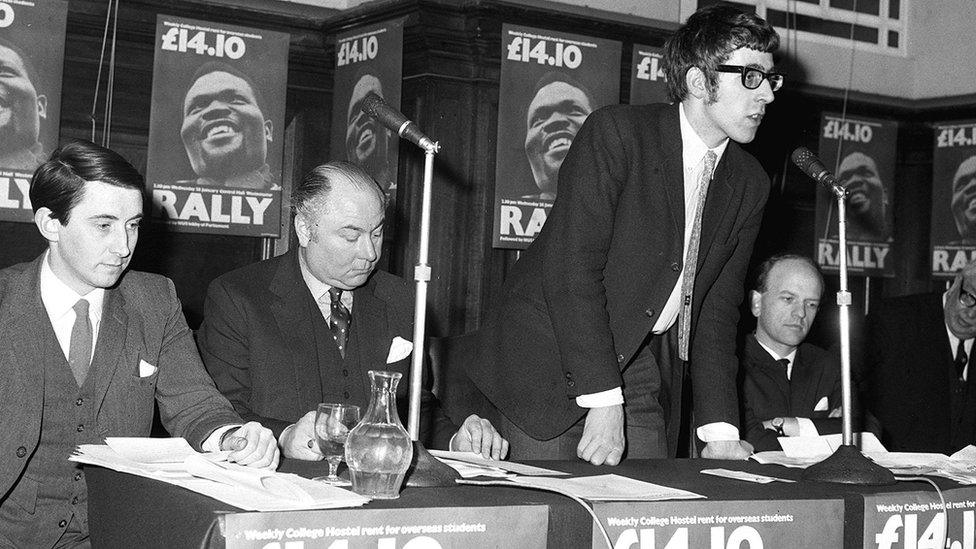
NUS president Jack Straw addresses a rally in Westminster in January 1970
Ms Bouattia, external is the first black Muslim woman to be elected NUS president.
Former holders of the post include former Foreign and Home Secretary Jack Straw and his Labour cabinet colleague Charles Clarke, who succeeded him as home secretary.
Others include writers and broadcasters Trevor Phillips and David Aaronovitch, social campaigner Sue Slipman and politicians Stephen Twigg and Jim Murphy.

Who is Malia Bouattia?
Malia Bouattia, now 28, arrived in the UK aged seven, not speaking a word of English.
In her election speech, external she told the NUS conference her family had been forced to flee their home in Algeria after "terrorists rained gunfire" on her school.
She said it was a desire for a good education for their children that brought her parents to the UK.
She attended the University of Birmingham from 2006 to 2014 and has held the post of NUS Black Students Officer since 2014.
In her speech she said reports that suggested any links with extremist groups were completely wrong: "I know too well the price of terrorism, the consequences of violence and oppression, I saw a country ripped apart by terror and was pushed into exile by its doing. I know too well the damage done by racism and persecution - I faced it every day."

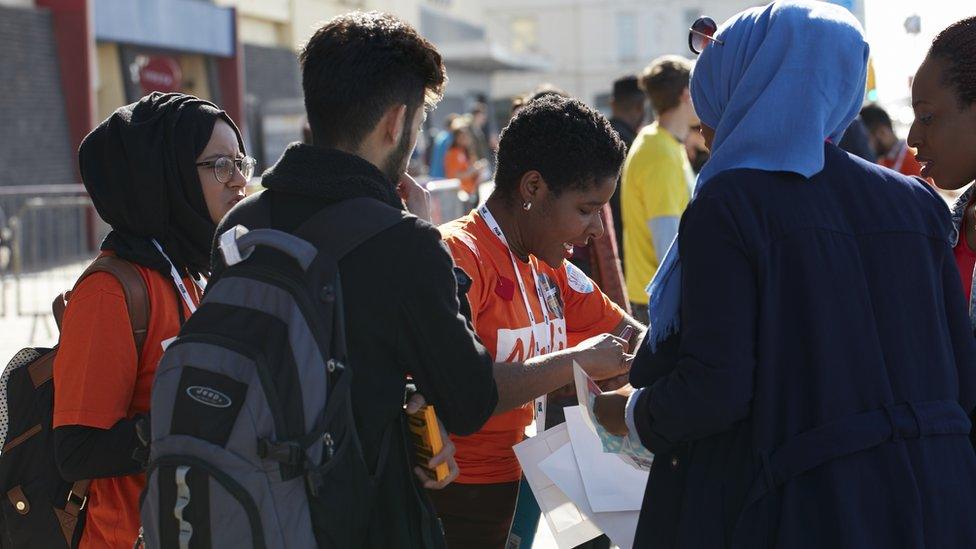
Malia Bouattia supporters campaigning at the NUS conference in Brighton
Ms Bouattia's campaigns have included Why Is My Curriculum White? and she has opposed the government's Prevent counter-extremism strategy.
In 2011, she co-wrote a blog for a Friends of Palestine campaign group saying that "the University of Birmingham is something of a Zionist outpost in British Higher Education".
'Demonise'
The group also publicised that it was "re-enacting an Israeli checkpoint outside the university's main library".
In a 2014 video from a Gaza and Palestinian Revolution event, she questioned the value of the Middle East peace talks and warned of the influence of "mainstream Zionist-led media outlets".
She has since said she is "extremely uncomfortable with insinuations of anti-Semitism", adding: "For me to take issue with Zionist politics is not me taking issue with being Jewish."
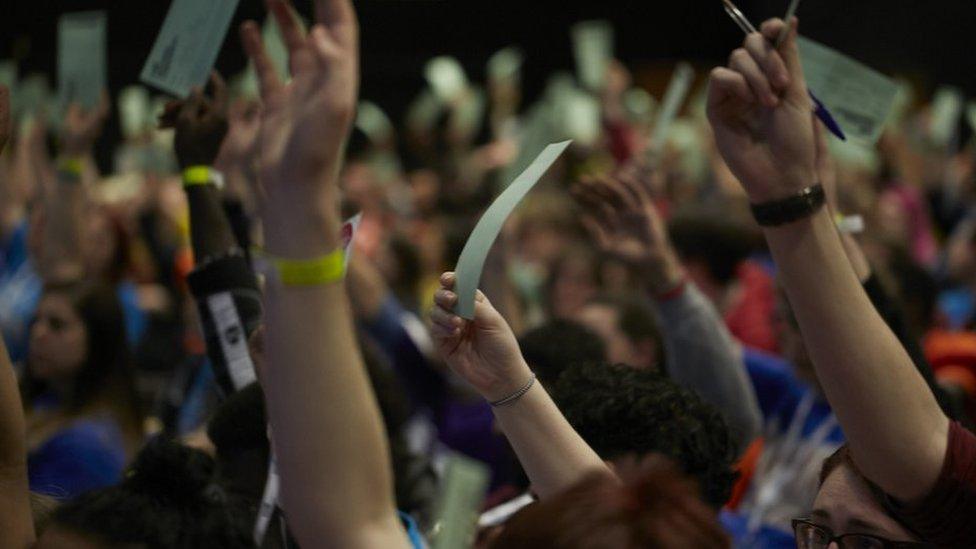
The conference voted against moving the NUS to a one member, one vote election system
She said it was "a political argument, not one of faith".
She has also been accused of not supporting a motion condemning so-called Islamic State.
But the NUS says this was because she disputed the wording of the motion and not the principle.
"Some committee members felt that the wording of the motion being presented would unfairly demonise all Muslims rather than solely the group of people it set out to rightfully condemn," said an NUS spokeswoman about the vote in 2014.
The NUS says a subsequent motion condemned "the politics and methods of Isis" and that this reworded policy was supported by Ms Bouattia.
"NUS does not support Isis and has always condemned violent terrorism," said a union spokeswoman.
- Published21 April 2016
